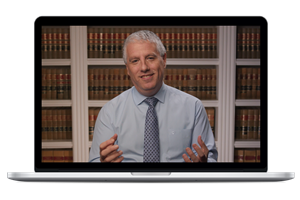End of Year 20-CPE Bundle

Overview & Basic
Multiple
Description
Earn up to 20 Continuing Professional Education (CPE) credits, including ACFE Ethics CPE, and save more than $500* with the End of Year 20-CPE Bundle! This limited-time offer is available through December 31, 2023.
This 20-CPE package includes a selection of ACFE self-study courses and webinars valued at more than $700. All courses provide NASBA-approved CPE and can be used for other professional credentials.
Prerequisites
None
What's Included?
This Bundle Includes:

Ethics, Rationalizations and Human Fallibility
CPE: 2 (ACFE Ethics CPE) | Course Level: Overview
Acting ethically seems easy. In theory, an individual can assess a decision, consider the ramifications, and reach a conclusion that conforms with their own ethical code. In reality, acting ethically is a constant battle against your subconscious, reactionary brain.
As a fraud examiner, it is important to understand how your subconscious can lead you astray and how fraudsters fall prey to common rationalizations and justifications for unethical acts. The same issues that lead to ethically dubious decisions can affect you in the course of your investigation. Fraud examiners must recognize these issues, develop ways to deal with them, and help organizations create more-ethical cultures. In this course, Bret Hood, CFE, discusses the blind spots of our reactionary subconscious and the ways fraud examiners can remain ethically conscious.
You Will Learn How To:
- Recognize how our subconscious minds affect ethical decision-making
- Describe psychological blind spots that impede ethical decision-making
- Develop methods to prevent unconscious biases from impacting ethical decision-making
CPE Information
- NASBA Information: Behavioral Ethics
- Advanced Preparation: None
- Last Updated: January 2023
- Delivery Method: QAS Self-Study

Inside the Fraudster's Mind
CPE: 8 (ACFE Ethics CPE) | Course Level: Basic
This course takes an inside look at the fraudster’s mind, exploring psychological information that is key to the successful development of a fraud prevention and detection program. This course includes a 50-minute online video examining ten common critical thinking errors displayed by fraudsters and how they are manifested in convicted perpetrators.
You Will Learn How To:
- Categorize ten common critical thinking errors associated with ethical behavior
- Compare the categories of perpetrators and how they are correlated to the reasons perpetrators commit crimes
- Differentiate between various criminological theories of human behavior
- Identify common motivations for committing fraud
- Identify indicators of deception
CPE Information
- NASBA Information: Specialized Knowledge
- Advanced Preparation: None
- Last Updated: March 2023
- Delivery Method: QAS Self-Study
Fraud Prevention
CPE: 3 | Course Level: Basic
Every day companies entrust their employees with cash, checks, inventory, trade secrets and other assets. While the majority of employees are honest, under the right circumstances, even the most loyal employees might steal if given the motive and opportunity to do so.
So, what can companies do? If most employees will steal under the right circumstances, then how can theft and fraud be prevented? This course addresses these questions and provides a guide to reducing your organization’s losses due to fraud.
Fraud Prevention also explores ways to sell fraud prevention to management and provides an overview of internal controls and preventative measures that you can implement to mitigate fraud.
You Will Learn How To:
- Recognize why people commit fraud
- Identify criminal behavior and common motives for fraud
- Categorize common occupational fraud schemes and determine which preventive controls mitigate these schemes
- Select fraud-prevention measures at the entity level
CPE Information
- NASBA Information: Specialized Knowledge
- Advanced Preparation: None
- Last Updated: October 2023
- Delivery Method: QAS Self-Study

Identity Theft
CPE: 2 | Course Level: Overview
Identity theft is a common type of fraud that does not discriminate. Anyone can be targeted; the victim might be a college student, a retiree, a schoolteacher or a successful attorney. Even businesses can be victims of identity theft.
This course discusses the types of identity fraud and provides guidance to prevent you, your business or even your children from becoming victims of identity theft.
You Will Learn How To:
- Identify the groups most likely to be perpetrators of identity theft, as well as the groups most likely to be targeted
- Compare common types of identity theft schemes
- Recognize the methods identity thieves use to steal information from individuals and businesses
- Determine the most effective methods of preventing identity theft for individuals
- Ascertain the most effective methods of preventing identity theft for businesses
CPE Information
- NASBA Information: Specialized Knowledge
- Advanced Preparation: None
- Last Updated: May 2023
- Delivery Method: QAS Self-Study
Developing and Defining a NextGen Anti-Fraud Culture
CPE: 2 | Course Level: Basic
The concept that culture is pivotal in combatting fraud may not be news. But establishing a strong anti-fraud culture can be elusive and even more difficult to measure. Fraud is continuing to evolve and grow, making it more important than ever for you to leverage your biggest tool—your people.
A next generation (NextGen) anti-fraud culture will push the boundaries. Rather than relying on standard training and hiring good people, a greater focus on codifying and measuring culture to enhance fraud risk management will better combat the ever-evolving threat of fraud every organization faces.
This on-demand webinar explores what good, better and best look like when it comes to anti-fraud culture and explore varying approaches and best practices each step of the way. This insight will enable you to enhance your overall fraud risk management program and move towards a NextGen anti-fraud culture.
You Will Learn How To:
- Define the importance of anti-fraud culture
- Determine what good, better, and best look like when it comes to anti-fraud culture
- Identify best practices and approaches for achieving a NextGen anti-fraud culture
- Measure or assess anti-fraud culture
CPE Information
- NASBA Information: Specialized Knowledge
- Advanced Preparation: None
- Last Updated: January 2022
- Delivery Method: QAS Self-Study

The Psychology of Scammer Tactics on Vulnerable Populations
CPE: 2 | Course Level: Basic
Do you know the latest frauds and scams targeting millions of hardworking and retired Americans?
In this on-demand webinar, you will learn how to understand and recognize common persuasion tactics used by scammers, how spoofing changed the fraud landscape with robo-calls, and what traits and vulnerabilities scammers look for in their victims. You will also learn which vulnerabilities scammers might use to target you.
You Will Learn How To:
- Identify common persuasion tactics used by scammers
- Recall best practices for reshaping the language of victimization
- Recognize common scams that target older adults
- Recognize the vulnerabilities that scammers look for and learn how to defend against them
CPE Information
- NASBA Information: Specialized Knowledge
- Advanced Preparation: None
- Last Updated: December 2022
- Delivery Method: QAS Self-Study
Is It a Red Flag?
CPE: 0.2 | Course Level: Overview
The term red flag is used frequently in conjunction with fraud investigations. Sometimes, it can be overused, and its value as an investigative tool may suffer as a result. In this course, you will learn how to consider whether certain facts, behaviors and qualities are indeed potential trouble signs or if these supposed red flags are nothing more than red herrings.
You Will Learn How To:
- Ascertain the difference between a legitimate red flag and benign context clues that can be misinterpreted as fraud indicators
CPE Information
- NASBA Information: Specialized Knowledge
- Advanced Preparation: None
- Last Updated: December 2022
- Delivery Method: Nano Learning

Cybersecurity Best Practices
CPE: 0.2 | Course Level: Overview
Through well-planned, multi-faceted cybersecurity programs, organizations of any size can greatly mitigate risks posed by computer frauds such as malware, social engineering techniques and unauthorized access of sensitive data. In this course, you will learn cybersecurity methods that are important pillars upon which to build a robust cybersecurity program.
You Will Learn How To:
- Identify methods of preventing or deterring computer and internet fraud
CPE Information
- NASBA Information: Information Technology
- Advanced Preparation: None
- Last Updated: March 2022
- Delivery Method: Nano Learning

Red Flags of a Ponzi Scheme
CPE: 0.2 | Course Level: Overview
The public has long known about Ponzi schemes. These scams continue to emerge and affect the global economy today. In this course, you will discover several red flags of a Ponzi scheme that can be used to help prevent unwitting investors from becoming victims of fraud.
You Will Learn How To:
- Recognize the red flags of a Ponzi scheme
- Distinguish the difference between a Ponzi scheme and a pyramid scheme
CPE Information
- NASBA Information: Specialized Knowledge
- Advanced Preparation: None
- Last Updated: January 2022
- Delivery Method: Nano Learning

The Fraud Triangle
CPE: 0.2 | Course Level: Basic
The Fraud Triangle is a model consisting of three components used for explaining the factors that cause someone to commit occupational fraud. In this course, you will learn about these three components through the use of an interactive model of the Fraud Triangle with videos from three convicted fraudsters.
You Will Learn How To:
- Recognize the elements of the Fraud Triangle
- Identify the elements of the Fraud Triangle in fraudsters’ behavior
CPE Information
- NASBA Information: Specialized Knowledge
- Advanced Preparation: None
- Last Updated: January 2022
- Delivery Method: Nano Learning

DLT Versus Blockchain
CPE: 0.2 | Course Level: Overview
This course will provide you with an introduction to distributed ledger technology, demonstrate how it compares to blockchain and show how fraud examiners should prepare as these technologies enter the larger fraud landscape.
You Will Learn How To:
- Recognize the primary features of distributed ledger technology and how it compares to blockchain technology
CPE Information
- NASBA Information: Information Technology
- Advanced Preparation: None
- Last Updated: November 2022
- Delivery Method: Nano Learning
Frequently Asked Questions
-
Q: Can I purchase this bundle after December 31, 2023?
A: No. This promotional bundle is available for a limited time. Purchase prior to January 1, 2024.
-
Q: How can I access my courses?
A: Once you're order has been processed, you can access links to your courses within the My Learning & Resources section of your ACFE.com account. It may take up to 30 minutes from purchase before the access links are created in your account.
-
Q: How will my CPE be provided?
A: CPE certificates will be provided individually for each course contained within the bundle. After successfully completing and passing the exam for a specific course, you will receive the associated CPE credit for that specific course at the time of completion. Successfully completing and passing the exams for each course contained within the bundle will provide you with a total of 20 CPE.
-
Q: How long will I have access to the courses contained within the bundle?
A: You will have one year from the purchase date to complete course. Access to the courses contained within the bundle will be removed once you have completed the course and have passed the exam or after one year from purchase date, whichever comes first.
-
Q: Can I purchase this bundle if I've previously completed one of the courses within the bundle?
A: Yes. However, if you've previously completed and earned CPE for one of the courses within the bundle in the past and the course has not been updated since you last completed the course, you will not be able to retake the course and earn new CPE. You can receive a refund for the cost of the individual course within the bundle that was completed previously by contacting an ACFE Member Services Representative at +1 512-478-9000.
 The Association of Certified Fraud Examiners, Inc. is registered with the National Association of State Boards of Accountancy (NASBA) as a sponsor of continuing professional education on the National Registry of CPE Sponsors. State boards of accountancy have final authority on the acceptance of individual courses for CPE credit. Complaints regarding registered sponsors may be submitted to the National Registry of CPE Sponsors through its website: www.nasbaregistry.org.
The Association of Certified Fraud Examiners, Inc. is registered with the National Association of State Boards of Accountancy (NASBA) as a sponsor of continuing professional education on the National Registry of CPE Sponsors. State boards of accountancy have final authority on the acceptance of individual courses for CPE credit. Complaints regarding registered sponsors may be submitted to the National Registry of CPE Sponsors through its website: www.nasbaregistry.org.
Policies
*Payment must be received prior to January 1, 2024 to receive the bundle discount. Discount cannot be applied to previous purchases or combined with other offers.
Ordering and Returns
Satisfaction Guarantee
If you are not 100% satisfied with any ACFE product, you may return it to us, provided it is in excellent condition, for a full refund of the item minus the cost of shipping. Toolkits and bundles may only be returned as a complete set.
Ordering & Returns Policy




